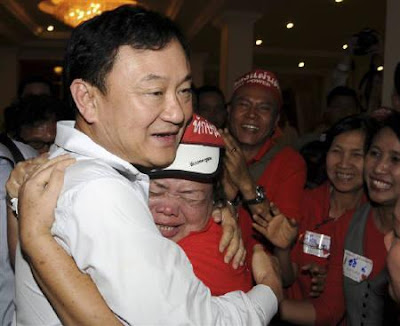 The opposition Sam Rainsy Party claimed that border pillars like this one have often been planted inside Cambodian territories under the new Cambodian-Vietnam agreements.
The opposition Sam Rainsy Party claimed that border pillars like this one have often been planted inside Cambodian territories under the new Cambodian-Vietnam agreements.The Cambodian Border Commission (CDC) has on 30th December convened a meeting to prepare the reports of its 2009 achievements and also to devise its 2010 plans, reports Deum Ampil.
The meeting, chaired by Mr. Var Kimhong, chairman of CDC, has tabled its 2009 works on the border demarcations with Vietnam based on the 1985 Cambodian-Vietnamese Treaty and the 1985 Supplemental Treaty ratified in 2005 on border delimitations and border demarcations. The meeting reported that, under the 1985 Treaty, the 1:100,000 scale Bonn map will be replaced with the 1:50,000 scale UTM map commissioned under the 1985 Treaty.
The meeting reports that, currently, the Cambodian-Vietnamese Border Commission had mapped 229 demarcation spots on the maps, which is equivalent to 73% of the total demarcation spots to be demarcated. Another 17% of the demarcation spots will be completed in 2010. Cambodia and Vietnam had agreed to plant 375 border pillars along the more than 1000 kilometres long borders. Currently, 160 border pillars (43%) had been plnated. The plantings of border pillars in seven international border checkpoints of Bavet, Tropeang Sre, Tropeang Thlong, Prek Chak, Ka-orm Samnor, Koh Roka and Banteay Chakrey will be given priority.
Cambodia and Laos had also agreed to plant between 100 to 150 border pillars. All the plantings of border pillars with Vietnam and Laos are scheduled to be completed by 2012.
Regarding the borders with Thailand, the MoU on land borders signed on 14th March 2000 and the MoU on maritime borders signed on 25th August 2003 between Cambodia and Thailand have been implemented with technical teams from both countries conducting surveys and searches for old border pillars planted under the 1904 convention and 1907 border treaty. On land boundary, 73 border pillars were planted along the nearly 800 kilometres long borders between the two countries after the 1907 border treaty. The search teams had found 48 old border pillars, with 33 pillars had been agreed by both parties and 15 pillars are still in dispute. The technical teams are still searching for the other 25 pillars.
On the Laotian borders, the border works had neared its completion, said Mr. Var Kimhong. Both countries had already delimited 465 kilometres (86%) of the total border lengths of 546 kilometres. Both sides had agreed on the spots of the delimitations of 311 kilometres and 154 kilometres length is still in dispute. Currently, 121 border pillars had been planted, 4 will be planted soon and 20 demarcation spots need to be negotiated.
Mr. Var Kimhong said the French delimitations, done during the colonial rule, were so complicated that require more times to study and more works to complete the border demarcations.
He also said that Vietnam's unilateral decision to dig a canal to use as a borderline in 1979 has violated the real locations of the borderlines between the two countries. "One more complicated issue is Vietnam's decision to dig a canal along the borders in 1979 that did not respect the real borderlines drawn on the maps. (Now), the local people who live on both sides of the canal must consider the dike and the canal as the real borderline between the two countries", Mr. Var Kimhong said.
At the end of the meeting, Mr. Var Kimhong said the border commission will find a formula that will not make local farmers lose their lands because of border demarcations.




















 Our picks for the Crazies of
Our picks for the Crazies of  Kirsten, 25, waitress, Aurora, CO
Kirsten, 25, waitress, Aurora, CO Michelle, 26, office manager, Anaheim, CA
Michelle, 26, office manager, Anaheim, CA






